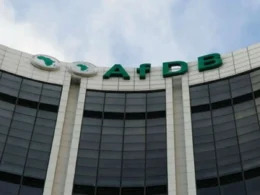Akwa Ibom State will host the 4th Agribusiness Roundtable International Conference from October 26-29, 2025, at Watbridge Hotels & Suites in Uyo, marking a pivotal moment for Nigeria’s agricultural transformation. The event will unveil the Climate-Smart Village Programme (CSV-P), Nigeria’s first national regenerative farming network designed to tackle soil degradation, boost smallholder productivity, and reduce chemical dependency.
A Strategic Alignment with National and Continental Goals
The conference brings together policymakers, investors, researchers, and farmer cooperatives aimed at repositioning agriculture as a key driver of Nigeria’s economic growth, with focus on food security, climate-smart farming, and regenerative value chains. The initiative aligns with President Bola Ahmed Tinubu’s Food Security Roadmap, the African Union’s Agenda 2063, and Governor Pastor Umo Eno’s Arise Agenda for Akwa Ibom State.
The gathering will bring together experts, investors, policymakers, and stakeholders from across Nigeria and beyond to chart strategies for food security, rural development, and sustainability, with over 500 participants expected, including governors, ministers, diplomats, lawmakers, and development partners.
Introducing the Climate-Smart Village Programme
The centerpiece of the conference is the unveiling of the Climate-Smart Village Programme (CSV-P) by AgroGreen Dynamics Ltd., Nigeria’s first Climate-Smart Villages initiative that integrates regenerative farming, cooperative empowerment, and digital extension services to restore degraded soils, boost productivity, and reduce chemical dependency.
The programme addresses critical challenges facing Nigerian agriculture. With over 80% of Nigerian farmers operating as smallholders grappling with degraded soils, poor fertility, and climate variability, the CSV-P offers a structured pathway from subsistence farming to commercial, regenerative agriculture.
Key Features of CSV-P
Farmers Field School (FFS): A “learn and earn” model that trains farmers, youth, and women on climate-smart and regenerative practices while linking them directly to markets. This addresses both knowledge gaps and market access challenges that have historically limited smallholder success.
Innovative Financing: The programme introduces Islamic-compliant agribusiness models and carbon credit systems, offering new financial opportunities for rural communities. This diversified financing approach makes climate-smart farming accessible to farmers who previously lacked capital.
Digital Integration: The CSV-P leverages digital monitoring tools to track soil health, crop performance, and environmental impact, providing data-driven insights for continuous improvement and investment verification.
International Standards Alignment: All participating villages will work toward compliance with GlobalG.A.P., HACCP/ISO 22000, and carbon credit eligibility frameworks, opening pathways to premium export markets.
Ambitious Rollout: From 100 Villages to National Scale
Phase 1 will launch 100 pilot villages across 18 states, scaling toward 774 CSVs – one per Local Government Area in Nigeria. This ambitious scale reflects the programme’s potential to transform Nigerian agriculture at the grassroots level.
The phased approach allows for learning, adaptation, and demonstration of results before nationwide expansion. Each pilot village will serve as a proof-of-concept, showing neighboring communities the tangible benefits of regenerative practices.
High-Level Government and Institutional Support
The Governor of Akwa Ibom State, Pastor Umo Eno, along with key ministers from the Federal Ministries of Agriculture & Food Security and Industry, Trade & Investment, will headline the event. Dignitaries will include the Honourable Minister of Agriculture and Food Security, the Honourable Minister of Industry, Trade and Investment, and representatives from the Federal Ministry of Budget and Economic Planning, the National Agricultural Development Fund (NADF), and the Federation of Agricultural Commodity Associations of Nigeria (FACAN).
International development agencies and private sector leaders are also expected to participate, underscoring the initiative’s strategic alignment with national and continental development goals.
Academic Validation and Research Backing
Dr. Ekanem Abasiekong Etuk, Associate Professor of Agricultural Economics at the University of Calabar, will present insights on Nigeria’s transition to resilient, climate-smart agriculture, highlighting CSV-P as a scalable model connecting policy frameworks, global certification standards, and farmer-level implementation.
Her presentation, titled “Climate-Smart Villages: Nigeria’s Transition to Food Security and Resilient Agriculture,” will provide academic rigor to the programme’s implementation strategy and expected outcomes.
The Urgency: Nigeria’s Soil Crisis
The timing couldn’t be more critical. Nigeria loses approximately 350,000 hectares of land annually to desertification, with desert encroachment advancing southward at 0.6 kilometers per year due to deforestation, over-cultivation, and overgrazing. One-third of the world’s topsoil is already degraded, and experts warn that without drastic action, global topsoil could be completely degraded within 60 years.
For Nigeria, this poses an existential threat to food security. The country’s agricultural productivity is severely constrained by poor soil fertility, irregular rainfall patterns, temperature increases, and extreme weather events—all exacerbated by climate change.
Beyond the Pilot: Long-Term Vision and Impact
The Climate-Smart Village Programme represents more than a pilot project — it serves as a strategic bridge between regenerative agriculture, digital monitoring, and sustainable financing. By empowering cooperatives, youth, and women farmers with training and direct market access, CSV-P aims to build food security, climate resilience, and inclusive rural prosperity.
The programme’s integrated approach addresses multiple dimensions simultaneously:
- Environmental: Restoring degraded soils, sequestering carbon, and reducing chemical pollution
- Economic: Increasing productivity, reducing input costs, and accessing premium markets
- Social: Empowering youth and women, strengthening cooperatives, and building resilient communities
- Institutional: Aligning with national policy frameworks and international standards
The Centre for Innovative and Sustainable Agriculture (CISA)
The conference will feature the groundbreaking of the Centre for Innovation and Sustainable Agriculture (CISA), which will serve as a hub for value addition, exports, and innovative solutions across the South East, South South, and surrounding regions.
CISA is designed to process, grade and serve as a major export hub in the South East, South South and other contiguous regions, providing critical infrastructure for transforming raw agricultural produce into processed, traceable, and premium-quality products that meet international trade standards, particularly the European Union’s new export requirements.
Recognition and Awards
The Agribusiness Development and Enterprise Awards (ADEA) will honour individuals and organisations who have pioneered innovative agricultural solutions and contributed to the growth of sustainable systems in the sector. The awards recognize “brilliant exemplars” whose contributions have improved livelihoods, created jobs, and advanced financial inclusion in rural communities.
Conference Activities and Engagement
The four-day event will feature:
- Launch of the Climate-Smart Village Programme
- Groundbreaking ceremony for CISA
- Workshops on regenerative agriculture and climate-smart practices
- Exhibitions showcasing agricultural innovations
- Agro-tourism activities
- Signing of export-focused Memoranda of Understanding
- Presentation of the Agriculture-Friendly Governor of the Year award
- Inauguration of NAADI chapters across Nigeria
Collaboration Opportunities
As AgroGreen prepares to scale CSV-P nationwide, opportunities for collaboration are open across multiple sectors:
Banking Sector: Providing innovative financing products tailored to climate-smart agriculture, including carbon credit-linked loans and Islamic finance structures.
Local Government: Supporting land allocation, farmer mobilization, and regulatory facilitation for CSV establishment.
Cooperatives: Serving as implementation partners for farmer training, aggregation, and market linkage.
Private Sector: Investing in agro-processing infrastructure, offtake agreements, and technology platforms.
Development Partners: Providing technical assistance, monitoring and evaluation frameworks, and scale-up financing.
Learning from Regional Success Stories
Delegates will review success stories from countries like India, which recently produced a rice surplus that reshaped global markets, and discuss how Nigeria can replicate such export competitiveness. These comparative examples will inform Nigeria’s pathway from food deficit to surplus and eventually export leadership in key agricultural commodities.
AgroGreen Dynamics: The Implementing Partner
AgroGreen Dynamics Ltd. brings proven expertise to the CSV-P implementation. The company has already trained over 3,000 farmers across Nigeria’s 36 states and the Federal Capital Territory, achieving up to 40% yield improvements and positively impacting over 25,000 hectares.
As the sole distributor of Humi[K] WSP®—a revolutionary soil-enhancement product from HGS BioScience, USA—in Nigeria, AgroGreen combines cutting-edge agricultural inputs with practical farmer training and cooperative organization.
Market Context: Meeting EU Export Standards
The emphasis on international certification standards is strategic. The event will focus on transitioning from raw produce exports to processed, traceable and premium-quality agricultural products that meet the European Union’s new export requirements. This positions Nigerian agriculture to capture higher-value export markets rather than remaining trapped in low-margin commodity exports.
Positioning Akwa Ibom as an Agribusiness Hub
Organisers said the initiative is aimed at positioning Akwa Ibom as a leading hub for non-oil exports, boosting foreign exchange earnings and strengthening the state’s agricultural economy. This aligns with Nigeria’s broader economic diversification strategy, reducing dependence on oil revenues by developing competitive agricultural exports.
Governor Umo Eno’s administration has prioritized agriculture as part of the Arise Agenda, making Akwa Ibom an ideal host for this transformative initiative.
The Road Ahead: From Conference to Implementation
The October conference marks the beginning, not the end, of Nigeria’s climate-smart agriculture journey. Following the launch, AgroGreen and its partners will:
- Establish 100 pilot Climate-Smart Villages across 18 states
- Train thousands of farmers in regenerative practices
- Install digital monitoring systems across pilot sites
- Facilitate access to carbon credit markets
- Build market linkages with local and international buyers
- Document lessons learned for replication
- Prepare for the national scale-up to 774 villages
Success will be measured not just in hectares covered or farmers trained, but in demonstrable improvements in soil health, productivity, farmer incomes, and climate resilience.
What This Means for Nigerian Farmers
For smallholder farmers, CSV-P offers a concrete pathway out of subsistence farming toward commercial, sustainable agriculture. The “learn and earn” model means farmers can improve their practices while maintaining income streams. Access to markets, financing, and certification opens doors previously closed to rural farmers.
For youth and women, the programme provides employment opportunities in agriculture—not as last resort subsistence farming, but as skilled, technology-enabled agribusiness. This addresses rural-urban migration by making farming economically attractive.
For cooperatives, CSV-P provides organizational frameworks, training infrastructure, and market access that strengthen collective bargaining power and economic resilience.













Comments 1